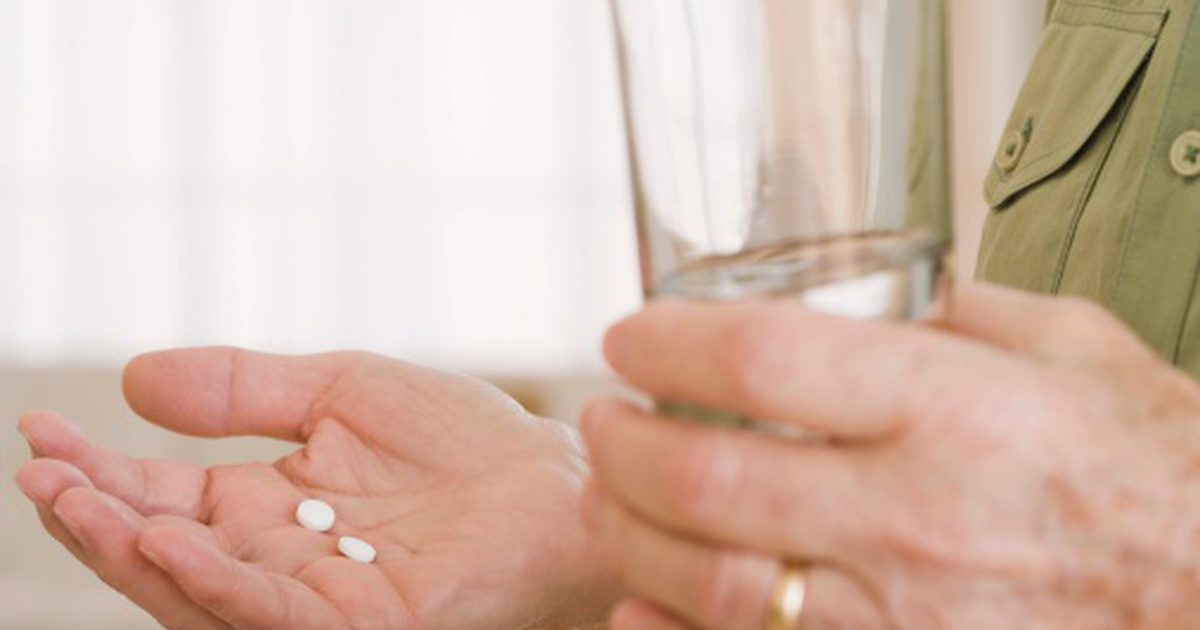How To Treat Skeeter Syndrome
Skeeter syndrome is an allergic reaction to the proteins found in mosquito saliva and is characterized by painful, red, and itchy swelling. Swelling and itchiness may be localized the site of the bite, but red bumps, blisters, itching, and bruises may also appear on other parts of the body not directly affected by the bite. In it's most severe (and rare) form, skeeter syndrome can lead to inflammation of the mouth, tongue, lips, and throat, restricting airways and causing a life-threatening emergency. Most cases of skeeter syndrome, however, require no medical intervention and can be treated with over-the-counter remedies.
Antihistamines

Antihistamines are compounds used to block the effects of histamine on the body. They can be used to treat skeeter syndrome and typically offer relief from some of the more uncomfortable symptoms, including itching and swelling. Antihistamines also help to open the airways and reduce inflammation of the air passages, helping those with skeeter syndrome to breathe easier. Most can be purchased over-the-counter without a doctor's recommendation. Some food and herbs are considered natural histamine blockers, such as stinging nettle and quercetin found in apples, onions, and other produce.
Continue reading to learn about more ways to treat skeeter syndrome effectively.
Anti-Itch Cream

Relief from the itchiness associated with skeeter syndrome can be obtained through the use of anti-itch creams. Look for creams with ingredients that will not only diminish the uncomfortable itching, but also help reduce swelling, which in turn can minimize pain. For a natural approach, creams containing oatmeal, chamomile, tea tree oil, and lavender oil have been found to be helpful in reducing itch. Whatever product is used, it's important to read and use the product according to the instructions. Reducing the itching is important because consistent scratching of the area can lead to skin punctures, which increase the risk of bacterial infection.
Keep reading to unveil more treatments for skeeter syndrome.
Epinephrine Auto-Injector

In some cases, skeeter syndrome may be severe and cause individuals to have serious internal issues instead of the typical topical skin annoyances. Those individuals with severe allergic reactions to mosquito bites may experience throat inflammation, resulting in difficulty breathing, a feeling of tightness in the throat, wheezing, and trouble speaking. Left untreated, skeeter syndrome can be life-threatening, so prompt treatment is necessary.
Individuals with a known severe allergy to mosquito saliva experiencing these symptoms may need to be treated with an epinephrine auto-injector pen. The treatment is injected into the body and begins working immediately to reverse the symptoms of a severe allergic reaction, including airway constriction. Note, however, a visit to the hospital is still necessary.
Continue to learn about another effective treatment for skeeter syndrome.
A Cooling Bath Without Soap

The symptoms of skeeter syndrome can also be calmed by taking a cooling bath without soap. Soap can irritate the area of the bite as well as those areas of the body experiencing swelling and other irritation due to the allergic reaction. However, the cooling effect of water can not only help to calm irritation and diminish itching but can also reduce swelling and pain. Adding milk to the bath provides added benefits. Milk has anti-inflammatory properties and adding it to the bath can help reduce multiple areas of swelling at one time.
Keep reading to discover the details about the next treatment for skeeter syndrome.
Baking Soda And Water

Using baking soda and water to form a thick paste has been found to be extremely helpful for patients suffering from skeeter syndrome. Baking soda helps to neutralize the pH balance in the skin, which results in reduced inflammation and itchiness. Baking soda is relatively inexpensive, making it not only an effective remedy but a cost-efficient one as well. A paste is made by mixing one tablespoon of baking soda with just enough water to make a paste. The paste is then applied to the site of the mosquito bite or other affected areas for ten minutes before rinsing clean. It's important to note because baking soda shifts the pH balance in the skin, it may cause skin irritation if an individual's pH balance is already imbalanced, so if this occurs, discontinue this treatment.